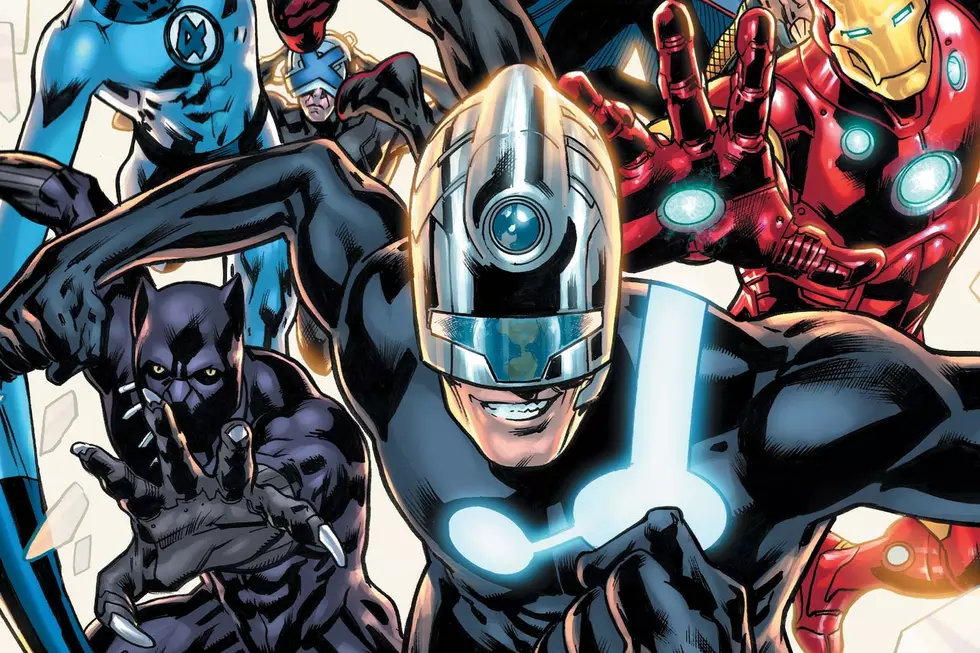
How ‘Jessica Jones’ and ‘Carol’ Brilliantly Reverse an Outdated Formula
The Bechdel test has long been a barometer for the quality and prevalence of female characters in fiction, often cited when we discuss the discrepancy of women in meaningful roles in film and television. In a superficial sense, Jessica Jones and Carol don’t have much in common — aside from strong women in leading roles, thoughtful narratives and fantastic performances — yet both of these stories not only serve as living and breathing examples of earning an A+ on the Bechdel test, but of going a step further by defying the basic, antiquated conventions that necessitated the test in the first place.
For those unfamiliar, passing the Bechdel test requires that a piece of fiction follows three rules: it must contain more than one woman character, they must speak to one another, and they have to discuss something other than men. Jessica Jones and Carol adhere to all three of these requirements so effortlessly that that the word “test” hardly need apply.
But what if there was a male version of the Bechdel test, one that required stories to have two men who speak to each other about something other than a woman? That’s not really a stretch, considering that male-driven narratives have largely dominated fiction for centuries; that hypothetical has always been the default with no designation required. Though recent years have seen a rise in television shows and films that center on and cater to women, a large portion of fictional entertainment has typically featured women in roles that exist in service of a man’s story: she is a mother, she is a daughter, a sister, a wife, a girlfriend; she is eye candy and / or an antagonistic presence.
Both Carol and Jessica Jones exemplify how to pass the Bechdel test with flying colors by gleefully and gracefully inverting that male-centric default, relegating the men to supporting roles and brilliantly using them as accessories in support of a woman’s story — though not without nuance, self-awareness and empathy. What happens when you treat men the way women have been treated in fiction for hundreds of years? As it turns out, it’s pretty joyful.
Todd Haynes’ Carol explores the passionate affair between young shopgirl Therese (Rooney Mara) and the older, sophisticated Carol (Cate Blanchett), estranged from the husband (Kyle Chandler) who is irrationally desperate to force a reconciliation. Set in the ’50s, Carol is a poignant, slow-building symphony of genuine love and emotion in which the female gender seems irrelevant in the sense that their relationship drama is universally recognizable. The male characters are not without impact: Carol’s husband, Harge, is responsible for much of the conflict, and Therese’s boyfriend is a pleasant plot device that helps inform us of her current existential state.
Harge is a largely antagonistic character, a simmering pot of aggression one degree away from boiling over, making his presence subtly unnerving. In almost any other version of this basic premise, Harge would be the petulant and desperate housewife knocking on doors in the middle of the night to find her straying husband, made to feel as though he is entitled to his adultery and that her hysterical reaction is hardly justified. But Carol turns that convention inside out, choosing to tell the story of two women following their hearts, trying to define and live a more honest life.
Carol’s husband and his actions have direct consequences on his estranged wife, via unannounced visits, custody disputes and one particularly egregious act involving a sneakily hired hand. Aside from Harge, the men of Carol are fairly inconsequential, existing only to service Therese and Carol’s narrative, whether it’s the friend who encourages the former’s professional growth or the lawyers engaged in the marital battle. These men never appear independently, together or without a woman present, nor do they ever speak about anything that doesn’t concern Therese or Carol.
Similarly, Jessica Jones rarely features a scene that doesn’t involve a woman’s presence directly or indirectly, offering a compelling narrative with remarkable thematic resonance. From showrunner Melissa Rosenberg, the series follows the eponymous hero (Krysten Ritter), a private eye and survivor of sexual assault, trauma and emotional abuse at the hands of a man who is the embodiment of white male privilege and Men’s Rights Activists (an absurd, unnecessary “movement”). When the villainous Kilgrave (David Tennant) resurfaces with his insidious mind-control abilities, Jones is forced to confront and put a stop to him for good, using her experience to help a fellow survivor and working through her own PTSD to do the best she can.
Jones is marvelously flawed and completely relatable, a hard-drinking, reckless and tough woman who can’t avoid being empathetic and heroic despite her evident cynicism. On a thematic level, Marvel’s latest Netflix series both objectively and subjectively explores concepts of consent, rape culture and misogyny, confronting ideas of male entitlement and female agency.
Like Carol, the men are mostly accessories to a narrative driven by women, including Jones, her best friend / adoptive sister, her lawyer / frequent client, and a fellow survivor. Luke Cage (Mike Colter) is something of an exception in that his inclusion serves to set up his own Netflix series, but like every other male character, he exists in service of Jones’ story and is rarely seen without a woman.
In fact, there are few — if any — scenes where a woman is not present on Jessica Jones or where a man is talking about anything that doesn’t have to do with Jones or the prominent women in her life, directly or indirectly. Whether it’s a (mixed gender) survivors’ group discussing their experiences with Kilgrave or Patricia Walker (Rachael Taylor) talking with her new boyfriend / troubled cop Will Simpson (Wil Traval), the entire Jessica Jones universe revolves around Jessica Jones. The men are far from useless and their actions do have direct consequences and meaning, but you could also reductively categorize them as objects of affection, antagonists or sidekicks.
Although they are superficially disparate narratives, Carol and Jessica Jones pass the Bechdel test so immaculately that the test itself almost feels as though it’s been rendered irrelevant — it hardly crosses your mind while watching either of these excellent stories unfold, except perhaps to note this particularly brilliant gender reversal. Even more interesting is the way that Haynes and Rosenberg have independently crafted stories that invert the long-standing gender default in fiction. It’s not that we need to show men how it feels to be relegated to the sidelines, to exist only to support someone else’s growth or to be a stifling antagonist, and to have their own existence diminished because they had the bad luck of being born into this world as the opposite gender.
Haynes and Rosenberg’s narratives aren’t spiteful or intended to smugly prove a point. They offer a nuanced inversion of an outmoded norm that inspires us to consider a woman’s place in fiction and perhaps in the larger world, and what it means to tell a woman’s story in a landscape that’s been generously saturated by stories of men.
More From ScreenCrush









